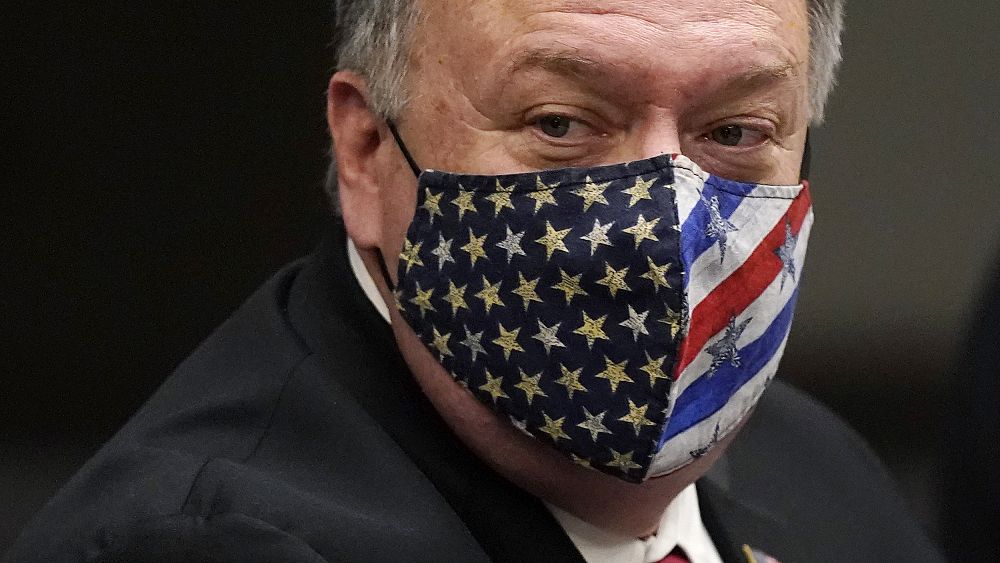The main issue on the agenda at a virtual summit of NATO foreign ministers was the rise of China, but a major row between the US and Turkey took centre stage.
Outgoing US Secretary of State Mike Pompeo took aim at Turkey during the meeting, decrying Ankara for compounding tensions with other allies in the Mediterranean and for buying a Russian-made anti-aircraft system.
Turkish FM Mevlüt Çavuşoğlu retorted saying Pompeo had incited European allies to unite against his country in the Mediterranean, also accusing the US of backing Kurdish “terrorist organizations” in Syria while Turkey went up against the extremist Islamic State group.
He added that the outgoing administration had refused to sell Ankara Patriot anti-aircraft weapons that were made in the US, among other accusations.
“I think this explains NATO’s conundrum; it’s in the middle of a deep political crisis with some allies, starting with Turkey, clearly on a very different trajectory to the other allies,” Fabrice Pothier, a senior consulting fellow at the International Institute of Strategic Studies, told Euronews.
The ministers addressed the global shift in the balance of power and how the alliance should adapt to a changing world at the two-day virtual summit that ended on Thursday.
The rise of China
The 30-member European and North American security bloc previously identified China as a rising threat alongside Russia in a report on recommendations for internal reform.
“China is not our adversary. Its rise presents an important opportunity for our economies and trade,” said NATO Secretary-General Jens Stoltenberg in a speech ahead of the meeting on Monday.
“We need to engage with China on issues such as arms control and climate change. But there are also important challenges to our security,” he added, singling out the country’s huge defence spending and its worldwide influence, achieved via its Belt and Road Initiative.
China said it would strive to continue dialogue with NATO in light of the report.
The next meeting of the NATO alliance is likely to be in the summer of 2021 or later in the year in autumn.
Alliance welcomes breakthrough in Afghan-Taliban peace talks
NATO Secretary-General Jens Stoltenberg on Wednesday also welcomed a breakthrough in Afghan-Taliban peace talks, amid uncertainty over the alliance’s future in Afghanistan and called for rapid progress on reaching a cease-fire and establishing a political road map.
The US envoy who brokered the ongoing talks between the Afghan government and the Taliban said the two sides had overcome a three-month impasse and agreed on rules and procedures for the negotiations.
The development is significant as it means the warring sides are getting closer to actually starting to negotiate the issues that could end decades of fighting in Afghanistan and determine the country’s post-war future.
But first, they must decide on the agenda for the negotiations, which is the next step.
“You can discuss whether it is a big or a small step, but the important thing is that it’s the first step,” Stoltenberg said, after chairing the NATO foreign ministers videoconference.
NATO has roughly 11,000 troops in Afghanistan, but under the US-Taliban deal, all foreign troops would leave the country by May 1 if conditions allow.
A decision on its future in Afghanistan, where NATO has led international security efforts since 2003 in the hope of keeping extremist groups at bay, is expected to be made in February after President-elect Joe Biden takes office.







